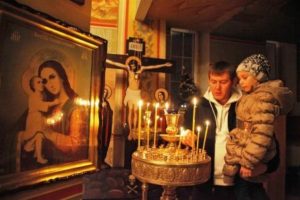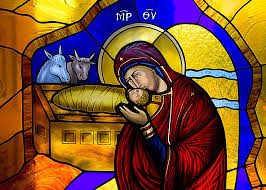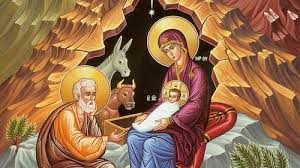Russia celebrates Christmas on January 7 this year! Christmas Day in Russia marks the birth of Jesus Christ in the Christian Orthodox tradition. Although banned during the Soviet times, Christmas is now regaining its popularity and religious meaning in Russia.
Due to a difference in calendars, Jan. 6 marks Christmas Eve for many Orthodox churches and Christmas will be celebrated on Saturday.
Archimandrite Christopher Calin, dean of the Russian Orthodox Cathedral of the Holy Virgin Protection, explained why so many Orthodox churches celebrate Christmas later than most other people.
“The majority of the Orthodox churches worldwide use the Julian calendar, created under the reign of Julius Caesar in 45 BC, and have not adopted the Gregorian calendar, proposed by Latin Pope Gregory of Rome in 1582,” said Calin.
There are 13 days in difference between the two calendars, the Gregorian calendar being the one long adopted by Western nations.
“December 25 on the Julian calendar actually falls on January 7 on the Gregorian calendar. So strictly speaking, Christmas is still kept on December 25, which just happens to fall 13 days later on the Julian calendar,” said Calin.
What Do People Do?
People in Russia celebrate Christmas Day with activities such as having a family dinner, attending a Christmas liturgy and visiting relatives and friends. There is a 40-day Lent preceding Christmas Day, when practicing Christians do not eat any meat. The Lent period ends with the first star in the night sky on January 6 – a symbol of Jesus Christ’s birth. Many Orthodox Christians go to the church to attend a Christmas liturgy that evening.
[See another story on Orthodox Christmas]
The first star also signals the start of the Christmas dinner. For many secular Russians, Christmas Day is a family holiday but it is not as important, for many families, as New Year’s Day. Many people visit friends and relatives, as well as give and receive presents, on January 7. Prior to Christmas Day, there is Christmas Eve, which marks the start of an old Slavic holiday, Svyatki, in which young women used a mirror and candles to invoke the image of their future husbands. Like going to church, fortune-telling on Christmas Eve is again becoming popular in Russia.
Public Life
Orthodox Christmas is a national holiday in Russia so banks and public offices are closed on January 7. If Christmas Day falls on a weekend, the non-labor day moves to the following Monday. Russian authorities may sometimes declare a national vacation from January 1 to 10 due to the close proximity of New Year’s holidays (January 1-5), Christmas and the weekends between these two holidays.
A Different Focus
The Orthodox observance of Christmas contrasts considerably from Western customs. Although Orthodox Christians also have an Advent season, which on the Gregorian calendar goes from Nov. 15 to Dec. 24, it is a time of fasting and performing deeds of charity.
“Many people observe the 40 days leading to Christmas as a way to renew their faith and relationship to God,” said Symeonides.
According to Calin, the Christmas holiday is spread over three days and includes various fasts and services of worship.
It begins with a service on Christmas Eve morning which involves reading Old Testament prophesies and New Testament passages followed by Communion.
A fast is kept throughout the day until sunset and the appearance of the first star at evening, where a special meal called the “Holy Night supper” is eaten.
This supper involves 12 meat-free and dairy-free dishes, one for each apostle. After a blessing and reading from the Bible the meal is eaten and then carols are sung. Then there is a Nativity Vigil consisting of psalms and prophesies being read. Those present are also anointed with fragrant oil that is blessed for the occasion.
On Christmas day, the faithful return to church for a service called “The Feast of the Nativity,” which includes Holy Communion. The final day, the day after Christmas, there are church services and celebrations honoring the Virgin Mary for her role in the nativity story.
Calin believes a striking difference of how the Orthodox Church observes Christmas is in the focus of the holy day.
“We focus more acutely on the aspect of the incarnation of Christ and the cosmic salvation it has for all mankind,” said Calin, adding there is “less sentimentality.”
“While many of the external trappings are the same, like Christmas trees, wreaths, ribbons and gifts, there is an increased emphasis on the spiritual reality of this truly miraculous mystery of God becoming man, so that man may be united to God and each other.”




Pingback: Christmas has Just Begun … | NEWSNET ONE